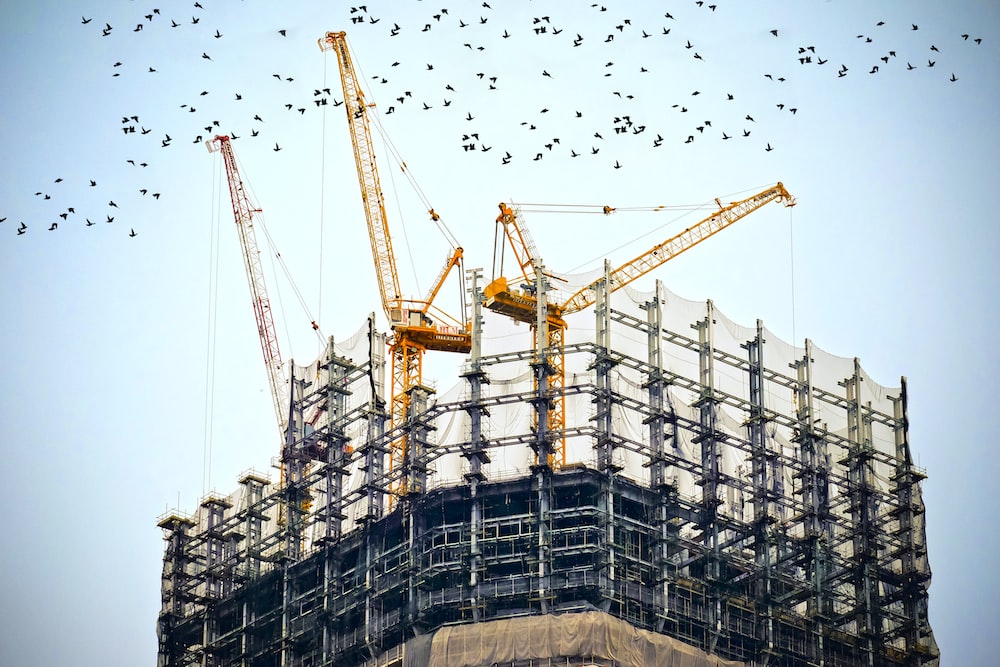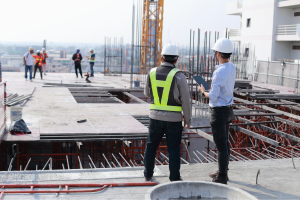Breaking Ground: Prioritising Mental Health in UK Construction
The construction industry plays a crucial role in the UK economy, driving infrastructure development, housing projects, and urban growth. Behind the scenes, however, lies a workforce that often faces unique challenges that impact their mental wellbeing.
In fact, with over 4 times the amount of people dying from suicides in the construction industry than other sectors, poor mental health is a real problem that urgently needs addressing.
The causes of poor mental health
While the construction industry is renowned for its resilience and hardworking ethos, it’s not immune to the mental wellbeing challenges that afflict employees in all other sectors. Work schedules can be rigorous and physical effort and exposure to dangerous surroundings can be common.
These elements, along with the stress of meeting deadlines and upholding high standards, can have an adverse effect on mental health. Compounding issues include:
- Long working hours and demanding schedules
- Physical demands and occupational hazards
- Job insecurity and uncertainty
The construction industry has traditionally embraced a “macho” culture characterised by toughness, resilience, and self-reliance. This culture can discourage open discussions about mental wellbeing and create a stigma that makes it more difficult to seek help or expressing vulnerability.
It’s harder to tackle mental health problems when the harsh reality is that some workers might feel pressured to repress their feelings in favour of showing a tough exterior. Team members are unlikely to offer the support they require due to the stigma around mental illness and so the condition will only become worse.
The industry can lessen the damaging effects on mental health by recognising the unique strains experienced by construction employees and fostering a supportive work environment.
The impact of poor mental health
Untreated or neglected mental wellbeing issues can have significant consequences for construction workers and their overall well-being. The problems include:
- Reduced individual performance and productivity
- Safety risks and increased likelihood of workplace accidents
- Poor work satisfaction and retention
- Long term illness, depression and suicide
- Overall impact on the industry
It’s crucial to understand and address the impact of poor mental health within the industry to promote healthier work environments and support the long-term success of workers.
For a workplace to prioritise employees’ well-being, there firstly needs to be an acknowledgement and understanding of the effects of poor mental health on construction workers.
Promoting a positive mental health culture
Promoting positive mental wellbeing within the construction industry requires a comprehensive approach that involves both employers and employees (and freelance workers), and not just for the construction workers and builders on-site, but the office administrators and staff too.
To develop an ongoing and lasting culture of better mental health, the actions should be considered:
- Consult with all employees to identify areas of need and stress
- Regularly communicate to raise and maintain awareness
- Implement wellbeing policies and procedures
- Ensure freelance and casual workers are included
- Drive for a better work-life balance across the business
- Provide accessible support services
- Lead by example
These best practices can help any business in the construction industry to develop a workplace that supports and encourages mental health. Whilst on the face of it this might look like extra work and investment, get it right and there will almost certainly be an improvement in overall performance and productivity. And also, a happier and more pleasant work environment for everyone!
External support
Numerous support systems and programmes have already been created to address the mental health and wellbeing of employees working in construction.
These initiatives work well then they raise awareness, normalise conversations around mental health and provide appropriate learning materials and support services. Priority is given to fostering a nurturing environment where mental health is widely discussed and accepted as a normal constituent of health and safety. Support can come from a number of areas.
- Online education and awareness platforms
- Mental health first aider training
- Employee Assistance Programs (EAP’s) and Counselling Services
- On-site medical support sessions
- Specialist training workshops for line managers
- Trade Union support networks
With so much support available, it can be difficult to choose where to start. It would make sense to first develop an effective mental health and wellbeing strategy.
Conclusion
The unacceptably high suicide rate in the construction industry alone should be pause for thought. However, beyond the moral (and legal) responsibility towards our fellow workers, increased performance and productivity means there are sound economic reasons to embrace mental health awareness too.
- The Economy and the Construction Industry
- Careers in Construction | SkillsYouNeed
- Strategies to improve mental health and well-being within the UK construction industry
- Construction industry can pave way to better support on mental health | Financial Times
- Building mental health in construction
- The importance of mental health support in the construction sector – SHP Online











